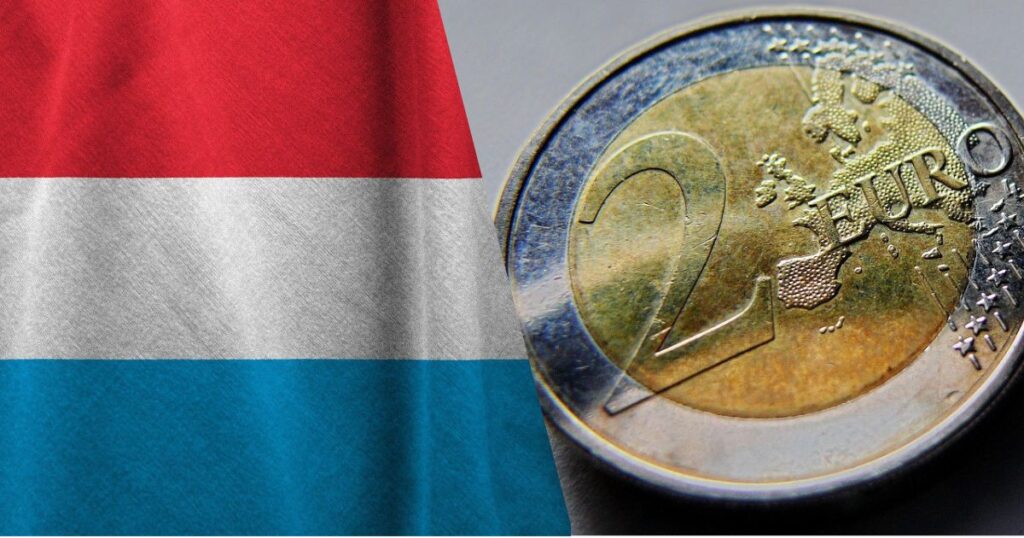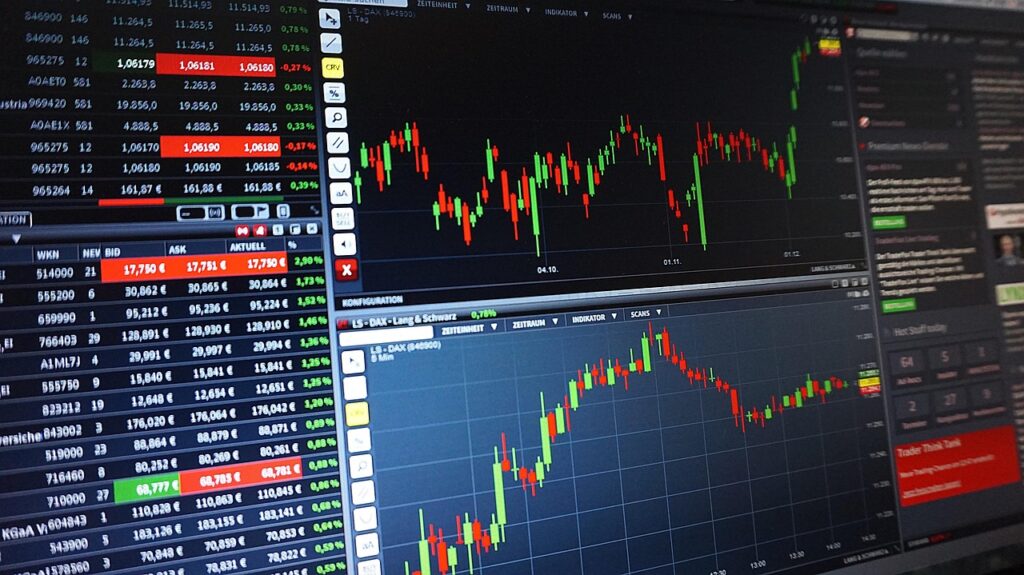How Luxembourg Currency Affects the Indian Stock Market?
When we think about the Indian stock market, most of us look at things like company earnings, government policies, or global events in the U.S. But do you know, a small European country like Luxembourg could quietly influence our Sensex and Nifty?
Luxembourg may not be on every Indian investor’s radar, but it’s a powerhouse in global finance. This tiny nation manages trillions of euros through its investment funds and banks, and that money doesn’t just stay in Europe. It flows into markets like India too.
In this blog, we will explore how Luxembourg’s currency connects to the Indian stock market, which sectors are most affected, Luxembourg currency exchange rate and what it means for you as an investor in 2025.
what is Luxembourg currency and its role?
Luxembourg doesn’t have its own separate currency, it uses the Euro (EUR, symbol €), just like most countries in the European Union. The euro is the second most traded currency in the world after the U.S. dollar, and it’s often called a “reserve currency” because central banks and investors across the globe hold it for safety and trade.

There are mainly two big advantages of adopting the euro for Luxembourg.
1. Smooth Trade and Business
Since Luxembourg is surrounded by countries like France, Germany, and Belgium (all of which also use the euro), having the same currency makes cross-border trade and business much simpler. There’s no need to worry about currency conversion or fluctuating exchange rates when companies deal with their neighbors.
2. Stronger Financial Hub Status
Luxembourg is not just a small country, it’s one of the biggest financial centers in Europe. It manages trillions of euros through banks, mutual funds, and investment companies. Because the euro is considered stable and reliable, international investors feel confident about parking their money in Luxembourg, knowing their assets are protected from wild currency swings.
Why Luxembourg Currency Matters for Indian Investors?
As an Indian investor, you might be thinking, Why should we worry about Luxembourg’s currency? After all, we trade in rupees and follow Nifty or Sensex. But it’s not like that, even though we are sitting thousands of kilometers away, the euro’s performance matters to India. As mentioned above it manages trillions of euros through banks, mutual funds, and global investment houses. When the euro strengthens or weakens against the Indian rupee (INR), it directly affects:
- Foreign Institutional Investment (FII) flowing from Europe into Indian stocks.
- Export revenues of Indian IT and pharma companies that earn a big chunk from Europe.
- Investor confidence, since the euro reflects the overall health of the European economy.
Luxembourg’s currency is the euro, and its role is much bigger than just being “money.” It’s the backbone of Luxembourg’s financial system and a key link between European capital and markets like India.
Luxembourg’s currency matters for Indians because it decides how much European money flows into India, how exporters perform, and how global investors view our market. Even if you invest only in Indian stocks, the euro can quietly influence your portfolio.
Which Sectors are Most dependent on the Euro?
Not every stock in India moves with the euro, but some sectors are more sensitive because they earn a large part of their income from Europe.
1️⃣ IT and Software Services
- Companies like Infosys, TCS, and Wipro earn a big share of their revenue from European clients.
- When the euro is strong, their earnings look bigger in rupee terms, which boosts profits and stock prices.
- A weak euro, on the other hand, reduces the value of payments received from Europe.
2️⃣ Pharmaceuticals (Pharma Exports)
- Indian pharma giants such as Sun Pharma, Dr. Reddy’s, and Cipla export medicines to Europe.
- A strong euro increases their export income when converted into rupees.
- This sector benefits directly from euro strength, making it one of the most euro-sensitive.
3️⃣ Automobiles and Auto Components
- Companies like Tata Motors and Motherson Sumi have significant sales and operations in Europe.
- Currency swings in the euro directly impact their revenue, margins, and global competitiveness.
4️⃣ Banking and Financial Services
- The Indian stock market receives large investments from European funds, many based in Luxembourg.
- Strong euro = more inflows into Indian equities.
- Weak euro = FIIs may pull out money, creating pressure on banking and financial stocks.
Opportunities for beginners in euro currency in india
If you are planning to start your investing or financial journey, you might think dealing with foreign currencies like the euro is too complicated. But, there are simple and beginner-friendly ways for Indians to benefit from euro movements, even without being a professional trader.

Here are some real opportunities:
Tracking Euro vs INR for Stock Market Clues
- Beginners can watch how the euro-INR exchange rate moves.
- A strong euro usually means IT and pharma stocks do well in India.
- By following this trend, you can make smarter entry or exit decisions in these sectors.
Mutual Funds with Global Exposure
- Some Indian mutual funds invest partly in European markets.
- As a beginner, you don’t need to trade forex yourself, just invest in such funds and indirectly benefit from euro performance.
ETFs and International Funds
- ETFs (Exchange Traded Funds) or international funds that track European companies give you exposure to euro-driven returns.
- These are beginner-friendly since they’re managed by professionals.
Currency Exchange as a Student or Traveler
- If you’re planning to study or travel in Luxembourg/Europe, keeping an eye on euro-INR rates helps you save on conversion costs.
- Even a small difference in exchange rate can save thousands of rupees.
Long-Term Portfolio Diversification
- Adding euro-based investments (like European stocks, funds, or even holding a little euro savings when traveling) can balance your risk.
- If the rupee weakens in the future, having exposure to euro assets protects your wealth.
how Indians can invest in Luxembourg funds in euros?
Investing in Luxembourg has become very simple nowadays with today’s digital platforms, even beginners can explore them. Luxembourg is one of the world’s biggest financial hubs, known for hosting thousands of international mutual funds and investment vehicles.
Here is how you can invest in Luxembourg:
1. Through Indian Mutual Funds with Feeder Options
- Some Indian mutual funds act as “feeder funds”, which means they collect money in INR and then invest it into global funds, often registered in Luxembourg.
- Example: An Indian investor can buy such a fund in rupees, and the AMC (Asset Management Company) handles the euro-based investment in Luxembourg.
- Benefit: Simple, regulated by SEBI, and no need to directly deal with foreign banks or euros.
2. Using Liberalized Remittance Scheme (LRS)
- Under RBI’s LRS scheme, every Indian resident can send up to USD 250,000 abroad each year for investments, education, or travel.
- You can use this to open an account with international brokers or fund platforms that give access to Luxembourg-based funds.
- Money is first converted from INR to euros, and then invested abroad.
3. Through International Brokerage Platforms
- Several online brokers now allow Indian investors to buy global mutual funds, ETFs, or bonds, many of which are domiciled in Luxembourg.
- Examples: Interactive Brokers, Vested Finance, and others that give access to European funds.
- Here, you’ll need a forex-enabled account since investments are made in euros.
4. Via Indian Banks with Global Tie-Ups
- Some Indian banks (like HDFC, ICICI, SBI) offer access to international investment products through their wealth management divisions.
- Many of these products are routed through Luxembourg or other European financial centers.
- This is more common for HNIs, but even smaller investors can explore if the bank provides such products.
5. Indirect Exposure via European ETFs Listed in India
- Few ETFs in India track European indices. These ETFs don’t directly invest in Luxembourg but still give you exposure to euro-based assets.
- Good option if you want euro exposure without remitting money abroad.
👇Explore:
Final Thoughts
The Luxembourg currency, better known as the euro, may feel distant from everyday life in India, but its movements create ripple effects that touch our markets, businesses, and even personal finances. From IT companies earning in euros to students planning higher studies in Europe, the exchange rate plays a quiet yet powerful role.
At the end of the day, you don’t need to be a forex trader to care about Luxembourg’s currency. Just staying informed about how the euro is moving against the rupee can help you make smarter financial choices, whether it’s investing in mutual funds, managing your travel budget, or spotting new opportunities in the stock market.



